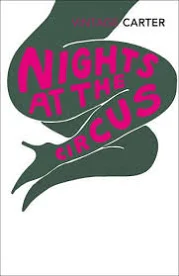
ANGELA CARTER: a fairy tale?
Carter was deliberately messy, awkward, even paradoxical in her behaviour: she never allowed herself to settle into any predictable guise or attitude for long

Literature For Later Life
Literature For Later Life
RAYMOND CARVER
BY Joseph Aloysius
American short story writer and poet Raymond Carver was born in Clatskanie, Oregon, in 1938 and died in Port Angeles, Washington, in 1988. Very few writers have been more influential on future generations of American and international authors. Carver played a major role in reviving the American short story form in the 1980s, and he has been referred to as one of the “greatest modern short story writers” and as “the American Chekhov”. Although he is often associated with Minimalism, Carver himself disliked the label, thinking it misrepresented the nature of his work. His later stories and the recently published Beginners, which features the original versions of the severely edited stories that appeared in What We Talk About When We Talk About Love, demonstrate the true expansiveness and heart of his style. Though he may be best known for his eight books of short fiction, he also wrote essays, plays, a screenplay, reviews, introductions, and seven books of poetry. Ten films have been adapted from his stories, including Jindabyne, directed by Ray Lawrence, and Short Cuts, based on nine Carver short stories and for which director Robert Altman was nominated for an Academy Award and won the Golden Lion Award at the Venice International Film Festival and an Independent Spirit Award for Best Director. The upcoming film Birdman by director Alejandro González Iñárritu (Biutiful, Babel, and 21 Grams) is based on Carver’s story “What We Talk About When We Talk About Love”.
Carver married and had two children shortly after his high school graduation and made his living in a series of menial jobs. The young Carver family moved frequently, with Carver often changing jobs and attending college courses when possible. He later found work as a textbook editor and finally as a creative writing faculty member at a number of universities. As his writing began to gain recognition, Carver began drinking more. Like the characters in his fiction and poetry, who often struggled with alcoholism, divorce, or bankruptcy, Carver’s family life was difficult, and the strain eventually unraveled his first marriage. Unlike many of his characters, who are not quite able to put their feelings into words, Carver was able to tap into the kind of suffering he had lived and observed and ultimately to relate these conflicts to readers in his carefully crafted and highly realistic stories and poems.
After multiple hospitalizations due to severe alcoholism, Carver finally confronted his addiction starting in 1977. He attended Alcoholics Anonymous and consigned himself to Duffy’s, a treatment center in Northern California, where he dried out and afterwards began to get his life back, despite at least one more relapse. His sobriety date was June 2, 1977. In 1977, he also met the poet Tess Gallagher and began a relationship with her that would continue until his death. Gallagher had grown up in Port Angeles, Washington, and she and Carver began to return there each summer and holiday since she had built a writing retreat there she called Sky House. In 1983, after Carver received the Mildred and Harold Strauss award, they began to travel more frequently to Port Angeles, eventually moving there, because the award required that he quit teaching and devote himself fully to writing. He wrote 200 poems alone in Sky House. He also wrote several stories at what the couple called “The B Street” house on the west side of Port Angeles. This timely award, Carver's sobriety, and his companioning by the writer Tess Gallagher, who became his wife June 17, 1988, allowed him to become incredibly prolific in his final years. Raymond Carver lost his battle with lung cancer in 1988 and is buried at Ocean View Cemetery in Port Angeles. Carver’s most recent publishing event was the publication of Beginners, the original restored versions of his book What We Talk About When We Talk About Love. Tess Gallagher was instrumental in seeing to it that the North American Library published this book as part of Raymond Carver: Collected Stories in 2009.
The Raymond Carver Festival thanks the Peninsula College Foundation and the Associated Student Council for their generous support.

THIRD GENERATION MUSIC LEGACY
silky and dreamy yet playfully adventurous, slightly bluesy twist
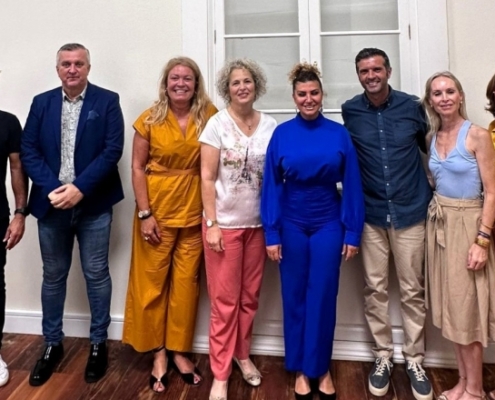
ECLECTIC AWARDS PROMOTING LANZAROTE´S TOURISM
The Municipal Government of Arrecife will present the Arrecife 2024 Tourism Awards this month during the World Tourism Day gala.
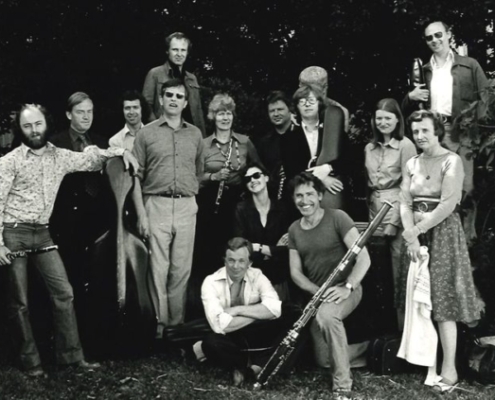
London Sinfonietta SUMMER SURVEY
Norman Warwick checks out
London Sinfonettia SUMMER SURVEY
We have featured London Sinfonettia in a couple of articles really. One of the articles focussed quite narrowly on the minimalist music they are currently rsearching, adapting and playing and the other more weidely on what seems to be a particularly energetic contributions of art in the community. It has been good to learn this week that they also take great notice of feedback for those engaging wih them, as either audience or players or volunteers or clients.
I have no great understanding yet of minimalism as a genre and I haen´t yet heard London Sinfonettia play, but I am nevertheless of the depth and range of their survey qustions which can be found on their website.
As another incredible London Sinfonietta season comes to a close, the ensemble is taking advantage of the summer to check in with its audience ! They want to hear your opinions on their work and to know whether your impressions of then match their own assumptions. By filling out this survey you are helping them provide an even better concert experience for you.
Their questions ask about your opinions on the ensemble´s standard of performances and productions; the balance of their programming; the outreach work in schools, in the community, and with emerging talent; their digital work; and your attitudes to societal issues such as equality and the environment.
There are a couple of questions which are simply to collate statistical data, like how many Sinfonettia concerts you might have seen, that check out brand awareness etc.
A more searching question with multiple response options asks what you might associate with London Sinfonettia and offers choices such as London Symphony Orchestrea and Manchester Collective, with even the options shown revealing the kind of stellar company kept by Sinfonettia.
We learn from another question that London Sinfonietta deliver participation and learning events (eg Sound Out or a schools concert or workshop) and a subsequent question refers to their PIONEERS membership scheme.
There ia a question in this survey that states boldly that London Sinfonettia hold aspirations of world class performances We are also able to gauge from the survey the diversity of work they undertake that might attract new members, These diverse strategies include performing 20th and 21st century contemporary music, commissioning new works and projects and collaborations with other art forms and genres.
The survey also asks ´Are you aware of the work the London Sinfonietta does in schools and communities, and supporting early-career composers, players and conductors?´
The survey also states that over the past year or so London Sinfonettia has hugely developed its digital service and asks how often their followers use that service.
As well as on line, London Sinfonettia can be found at Facebook, Instagram, X, Linkedin and Tik Tok and others. If you are familiar with their work then your opinions would be invaluable to London Sinfonewttia, and, if you are not familiar with the ensemble then their own survey, available on line, might be a great way of learning more about them !
Just tap their name, London Sinfonettia into your search engine of cjoice.

REVERBERATIONS
In searching on line for a book that might illuminate the current state of theatre in Britain, I was drawn to a book thatmight address the the topic from an informed perspective.
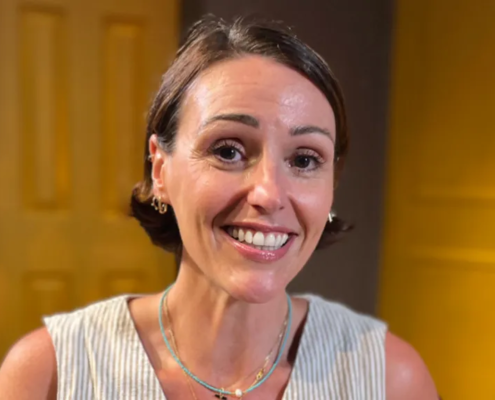
SURANNE JONES wants to promote small theatres
Actor Suranne Jones has said she wants to "promote small theatres and small stories" as part of her role as president of a small seaside venue.
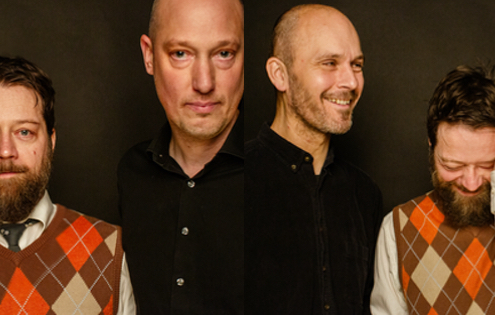
ECHOES TO EXPAND from Soren Bebe
Soren is for me a new name but has already found a unique space amongst the other great Scandinavian piano players like Esbjörn Svensson, Tord Gustavsen etc."
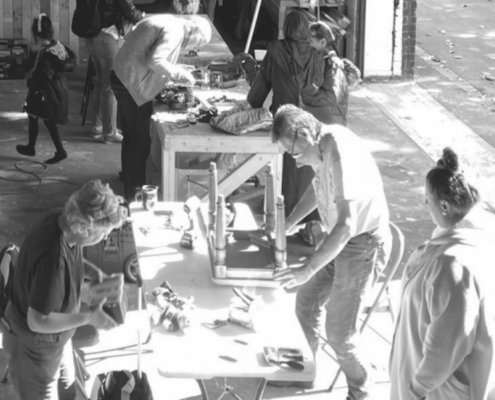
THE BOILER HOUSE: Moss Side
THE BOILER HOUSE: Moss Side
growth and sustainability
by Norman Warwick
The Boiler House is a unique community hub in Greater Manchester, transforming lives through creativity, sustainability, and hands-on skill-building.
Tucked away in Moss Side is The Boiler House: a place where creativity, sustainability, and community come together.
The Boiler House, a unique centre for making and mending, has become a vital part of the local landscape, offering more than just workshops and tools.
It has transformed a derelict power station into an exciting hub for social change, skill development, and environmental action.
For Emily Corner, Operations Manager at Boiler House, the project is more than a 9-5, it’s a huge passion.
“We aim to provide free and low-cost use of tools, equipment, and space for people and be a catalyst for people to reach their potential,” she said.
The Boiler House is special, offering a space where anyone can come together, regardless of their background, to learn, create, and build a stronger community.
The Boiler House is an initiative run by Sow the City CIC, a Manchester-based social enterprise that signed a 12-year lease with One Manchester in 2019 to transform the disused power station.
“At the time, the building was underused and inaccessible to the public,” Emily explained.
“Over the past five years, we’ve reimagined this space, creating a community hub that offers workshops, equipment, and a platform for creative collaboration.”
Since its inception, The Boiler House has remained focused on making a tangible impact in the local community.
The centre runs a variety of community workshops that not only teach practical skills but also improve health and wellbeing, contribute to the development of a circular economy, and promote gender and race equality.
“Our centre provides space for people of all ages and backgrounds to work together and participate in practical, hands-on ways to shape their lives and communities,” Emily added.
Whether it’s something as simple as making planters for growing vegetables at home or as complex as fabricating new products, The Boiler House believes that with the right encouragement and support, everyone can make and mend things.
The Boiler House is, at its core, a community-driven initiative.
Emily stresses that ‘over 40% of people that use the Boiler House are from Moss Side and Hulme‘ and the centre tailors its offerings to meet the needs of this diverse community.
From hands-on DIY courses to workshops on energy saving, the centre offers practical activities that empower residents to become more self-sufficient.
The ‘Make and Mend’ and ‘Energy Group Sessions’ are perfect examples of this, teaching DIY skills that help people save money and foster independence.
One of the standout features of the Boiler House is the ‘Repair Café’, a regular fixture that has become popular with locals. The idea is simple but powerful: instead of throwing broken items away, people bring them to the Repair Café, where they can fix them with the help of skilled volunteers. “It’s been really well received, especially after we were featured on BBC Radio 4’s You and Yours,” says Emily.
The Repair Café not only helps people save money, but it also fosters a culture of reuse and recycling, contributing to the centre’s wider goals of sustainability.
The Boiler House isn’t only about building physical skills; it’s about supporting the mental and emotional wellbeing of the community.
With a range of free and affordable courses, the centre plays an important role in combating social isolation and promoting personal growth.
As Emily explained, “We run programs that improve health and wellbeing by fostering creativity and connection.
“Our Women’s Shed and DIY courses, for example, aim to empower women from diverse backgrounds through woodworking and DIY activities.”
These programs help to build confidence and a sense of belonging.
By providing a safe and welcoming space for individuals to come together and engage in meaningful activities, The Boiler House helps improve mental health resilience and overall wellbeing.
The centre’s recent Cost-of-Living programme, funded by the Council in 2023/24, brought in over 200 people from diverse backgrounds.
This initiative included volunteering activities, courses on energy saving, woodwork, bike repairs, and the Repair Café.
The program had a notable impact, with 54% of participants coming from non-white British backgrounds and nearly half of them living in Moss Side and Hulme.
These numbers reflect the centre’s commitment to inclusion and its ability to engage with a wide range of community members.
One of the most exciting aspects of The Boiler House is its focus on sustainability and the circular economy. “Our programme of events encourages skills building to promote a circular economy,” Emily said.
This means that the centre’s activities are designed to minimise waste, reuse and recycle materials, and create products that can be easily repaired or repurposed.
The Moss Side Repair Café is a prime example of this. The sessions, which have been running for four years, provide a space and tools for repairing broken items, extending their life, and reducing waste.
This initiative links in with the international Repair Café movement, showing that even small, local actions can contribute to global sustainability efforts.
Another innovative project at The Boiler House is ‘Precious Plastic’, a small-scale plastic recycling initiative that turns waste plastic into beautiful new items for the home.
This project is part of a wider international movement and is just one example of how the centre is promoting resource efficiency and environmental responsibility.
The Boiler House also incorporates community growing into its activities, reflecting the mission of Sow the City to encourage self-sufficiency and reduce carbon footprints.
The centre’s Mushroom Lab and community garden space area couple of ways in which they are fostering local food production and teaching valuable skills in growing and sustainability.
One of the most impactful aspects of The Boiler House’s work is its commitment to skills development.
By offering hands-on workshops and training, the centre is equipping individuals with the practical abilities they need to improve their lives, find employment, and contribute to the local economy.
“Our woodworking and DIY courses, for example, help people learn how to repair and modify items, which promotes resource efficiency and reduces the need for new products,” Emily explained.
This emphasis on practical skills not only benefits the individual but also contributes to the community as a whole by creating a more self-sufficient, resilient population.
The centre also provides free bike repairs in partnership with Manchester Cycling Academy, which helps residents save money on transportation costs and encourages cycling as a healthier, more sustainable option.
Additionally, the popular ‘Volunteer Fridays’ have been a great success, with regular volunteers gaining valuable skills in gardening, mushroom growing, and plastic rec
The success of The Boiler House is measured not just in numbers, but in the positive impact it has on the lives of those who participate in its activities.
“We track participation, community engagement, skill development, wellbeing, social impact, economic benefits, and environmental impact,” Emily explained.
Feedback is gathered through annual surveys, regular community steering groups, and social media, ensuring that the community’s voice is always at the heart of the centre’s operations.
Looking to the future, The Boiler House has ambitious plans for growth.
“We’d like to continue to refurbish and expand the usable area of the building over the next few years,” Emily said.
This includes converting a large mezzanine area into more community workshop spaces and using old glass doors donated from the velodrome to insulate and glaze one side of the building.
The centre also plans to collaborate further with local organisations and groups, inviting them to use the workshop spaces and develop new project ideas together.
In September, the centre will launch a Lottery-funded project offering even more free activities for local people, in addition to its usual offerings.
These future developments ensure that The Boiler House will continue to play a vital role in the community, driving social change, supporting the local economy, and promoting a sustainable way of life.
If this is something you like the look of, or would like to get involved – The Boiler House are having an open day on Thursday 19th of September from 2-4pm.
This is a great opportunity to learn about all of the exciting projects going on at The Boiler House.
Whether you’re interested in developing new projects or signing up for their free courses, there will be something for everyone to get involved in. There will be taster session activities – have a go at growing mushrooms, or try some woodworking. It doesn’t matter if you no experience, all skill levels are welcome.
Snacks and refreshments will be provided.
The Boiler House is much more than a centre for making and mending.
Through its dedication to inclusivity, sustainability, and skill-building, it is making a real difference in the lives of the people of Moss Side and Greater Manchester.
Through its dedication to inclusivity, sustainability, and skill-building, it is making a real difference in the lives of the people of Moss Side and Greater Manchester.
As the only Centre for making and mending in the region, The Boiler House has carved out a unique and invaluable space where creativity, community, and change come together.
As Emily said, “Boiler House is something special.”
And for the community it serves, it’s clear that this space is not just special—it’s essential.
Address & contact:
9 Wilcock Street, Manchester M16 7DA, 0161 465 6954
This article was first published on 15 August 2024 and is subject to be updated from time to time. You can subscriber for free e mail delivery of the I Love Manchester newsletter, which presents a comprehensive and eclectic view of the city. Just check out on line.
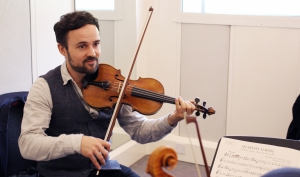
ART IN THE COMMUNITY
events are now to be expanded from their current schedules in Gorton and Wigan into all the boroughs of Greater Manchester.
